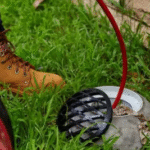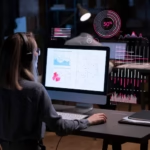Understanding the Early Signs
Identifying the initial symptoms of cognitive decline is crucial for prompt intervention and successful treatment. Early signs could include memory loss, trouble recalling words, and struggling to complete regular tasks. These symptoms can be subtle, but identifying them early can help slow down the development of cognitive issues. Early-stage cognitive decline can be prevented, and its risk can be mitigated by eating a balanced diet and getting frequent physical and mental exercise.
More serious symptoms, like sudden confusion or difficulty speaking, could suggest a more severe condition, such as a mild stroke. Prompt identification and timely mild stroke treatment are crucial for minimizing lasting harm and enhancing recovery results. Comprehensive care, such as medication, therapy, and lifestyle modifications, can significantly improve overall well-being and cognitive function following a stroke.
Recognizing Physical Symptoms
- Numbness or Weakness: Experiencing sudden numbness or weakness in your face, arm, or leg, especially on one side of the body, is a severe sign. This symptom is often dismissed as fatigue or a minor health concern, but in reality, it’s a significant indicator of a stroke or TIA.
- Vision Issues: Sudden loss of vision, blurred vision, or double vision can be alarming and should not be ignored. These symptoms can indicate a blockage or reduced blood flow to your brain, which requires immediate medical intervention.
- Loss of Coordination: Experiencing difficulty walking, sudden dizziness, or a loss of balance and coordination are significant red flags that can disrupt daily activities and signal an underlying stroke.
Speech and Cognitive Changes
Verbal communication can offer vital hints about a stroke. If you have trouble speaking, understanding speech, or experiencing sudden confusion, it is crucial to seek medical help. These subtle changes could be important clues to a potential mild stroke or TIA. Failing to pay attention to these signals can result in more severe issues, highlighting the importance of prompt action.
Immediate Actions to Take
- Don’t Ignore Symptoms: Even if symptoms appear to subside, seeking medical help without delay is essential. Ignoring symptoms can lead to more severe strokes and long-term damage.
- Call for Help: Immediately dial emergency services if you or someone else shows signs of a stroke. Quick medical intervention can significantly improve recovery outcomes and reduce the risk of complications.
- Note the Time: Keep track of when symptoms began. This information helps healthcare professionals provide the most effective treatment. Treatment options can differ significantly depending on how long symptoms have been present.
Timely intervention is critical. A quick medical response can prevent further strokes and reduce the risk of long-term damage. Early treatment can drastically alter the prognosis and outcome of stroke recovery.
Prevention and Lifestyle Changes
Preventing strokes necessitates making significant changes to one’s way of living. Consuming a mix of fruits, vegetables, and whole grains is crucial for supplying essential nutrients to your body. Taking part in consistent physical activity, such as doing 30 minutes of moderate exercise daily, can reduce the likelihood of stroke by enhancing heart health. To reduce the chances of having a stroke, it is advised to refrain from smoking and control the amount of alcohol consumed. Managing pre-existing conditions like hypertension, diabetes, and high cholesterol levels is equally important. Carefully observing these health issues and following your healthcare provider’s guidance can significantly reduce the chances of experiencing a stroke.
Regular Health Check-Ups
Regular health check-ups are crucial for identifying potential health risks early on. Consistently monitoring your blood pressure, cholesterol levels, and blood sugar is essential for effectively controlling and reducing these dangers. Taking proactive measures for health management can significantly lower the likelihood of experiencing a stroke. Being vigilant about your health and detecting any changes early can make a significant difference in preventing major health issues such as strokes.












